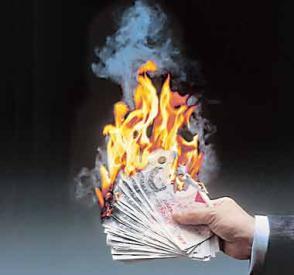Policy choices and the political business cycle

The political business cycle - the theory that during the run up to an election, the government has an incentive to produce a giveaway budget to woo prospective voters – is a perpetual feature of elections. Recent research on the US economy has shown election outcomes are strongly correlated with only the last two quarters of economic output. In other words, voters have very short memories. Struggling politicians therefore have a strong incentive to produce giveaway budgets near election years, regardless of whether it is a good idea economically or not.
Ireland’s policy makers are in a bind. With an election looming, our government cannot splurge on pork barrel projects to keep interest groups and the public at large happy, because any extra spending will come from borrowing, and the bond markets will not like that, as it will signal that the government is not serious about fiscal reform. Anything perceived as a splurge will cause the cost of our borrowing to increase. The government cannot cut too far either - that way political suicide lies. So we have an intriguing problem: the government has committed to a programme of fiscal rectitude by 2014 - expenditure cuts and tax increases - but politically it can’t credibly carry out that programme of fiscal rectitude without guaranteeing electoral immolation. What to do?
The simplest way forward is to guarantee no further cuts in the next 18 months, and talk up the lack of a nominal cut in wages and overall expenditure during the summer months and the lead-up to the budget. A sustained PR barrage should do the trick. On budget day, the Minister for Finance should deliver some showpiece ‘victories’ in the form of slightly increased taxes (ideally newer taxes which won’t be rolled out fully over the 2011 fiscal year), to placate the bond markets, and maintain the rhetorical line that the ‘plan is working’.
The public will only be satisfied with this if the government’s PR machine is at full speed over a three-month period, and this will be no easy feat, given the more or less constant stream of PR cock-ups this government is liable to make. The bond markets, who have lent Ireland more than 25 billion euros of short term debt, will watch Ireland’s 2011 budget in December 2010 keenly, and they will be looking for cuts.
We are in the middle of an unplanned experiment: a small open economy, peripheral to a large trading bloc, with no independent monetary policy, suffering from a fiscal shortfall caused by the bursting of an old-fashioned property bubble. Ireland is dependent on borrowing and must adjust to the post-bubble reality by depressing wages. Prices will fall, so the small open economy will see either a short deflation, or near-zero inflation. The small open economy has double-digit unemployment, and has no means to stimulate further employment, and so its policy makers are left with no options but to pray for emigration, or suffer the societal damage of long term unemployment.
Ireland is a special case of the political business cycle: here our policy makers can’t just do something; to have a prayer of saving themselves, they have to stand there, do nothing, and watch the experiment unfold.
